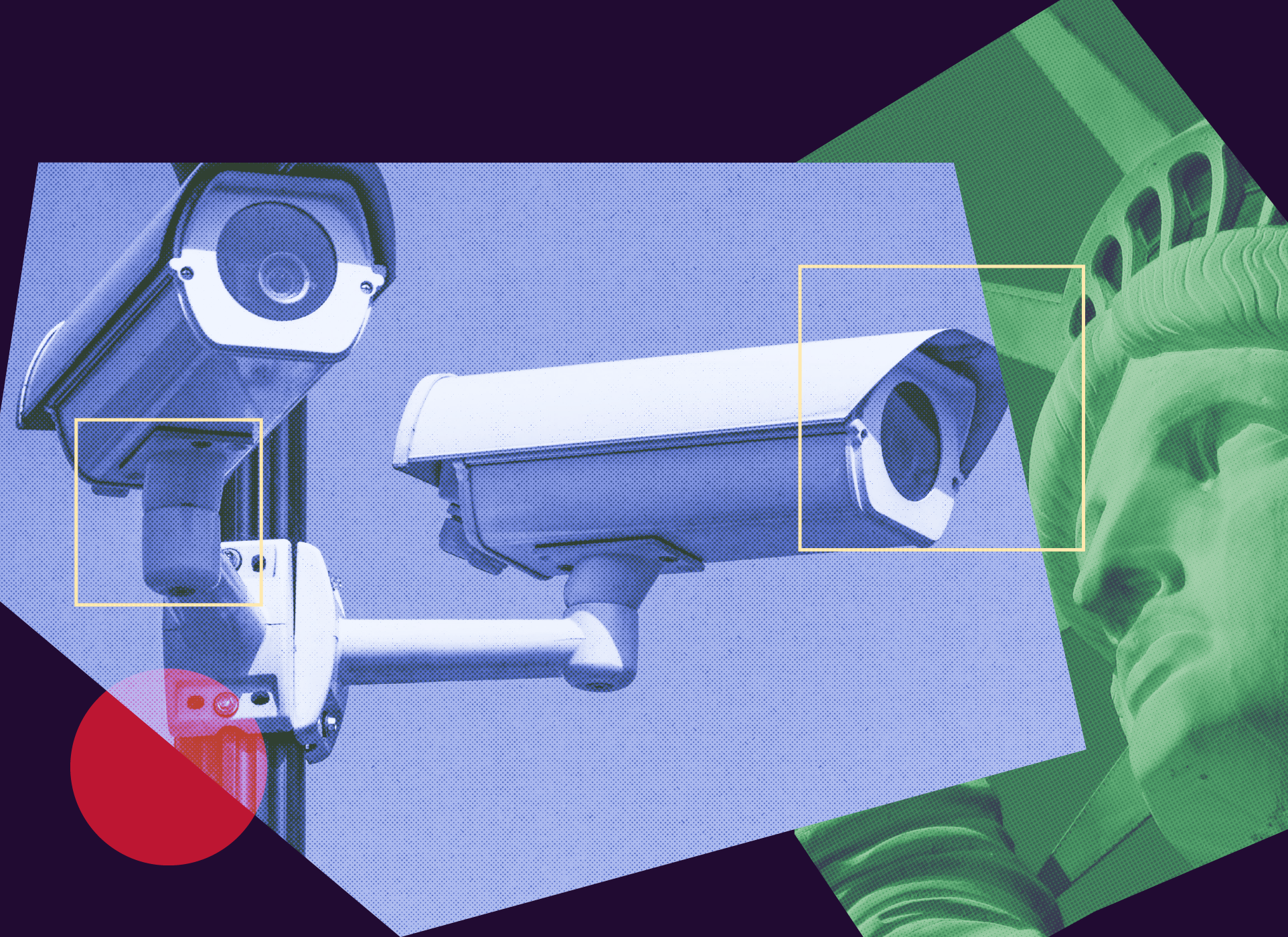Office Closure: December 19 - January 4
The ACLU of Arizona is closed for the holidays! We will resume normal operations beginning January 5.


2026 Legislative Session
By completing this form, I agree to receive occasional emails per the terms of the ACLU’s privacy statement.
Last updated on January 22, 2026
The ACLU of Arizona is on the front lines every legislative session, backing laws that strengthen civil rights and liberties and pushing back on those that infringe on those very freedoms. Here's what to expect during Arizona’s 2026 Legislative Session.
Arizona’s most recent legislative session started on January 12, 2026, and is expected to end during the summer. In that time, state lawmakers will introduce legislation, consider bills, debate policy, evaluate the state budget, and pass laws that impact life for all Arizonans.
In 2025, the ACLU of Arizona tracked 116 bills that impacted civil rights and liberties and testified on 70 of them. We expect this legislative session to be another busy one as we advocate for proactive bills to improve the lives of Arizonans and fight back against harmful legislation that strip people of their rights.
Legislative Advocacy Overview
Arizona lawmakers work for the Arizonans who voted them into office, not the other way around. That is why we work diligently to testify at the capitol, stop harmful legislation in its tracks, and advocate for the progress we know Arizonans want to see. Every year, we bring the full force of the ACLU of Arizona and thousands of our supporters to defend civil rights and liberties at the legislature:
- Our policy team provides valuable analysis and testimony at the capitol.
- The ACLU of Arizona’s organizing team works to mobilize volunteers and connect constituents with their lawmakers.
- Our communications department amplifies the organization's positions in the news, on social media, and with our supporters.
- Our legal team weighs in on the legal implications of certain bills, and how they might advance or infringe on constitutional rights.
But nothing is as impactful as having lawmakers hear from you, their constituents.
You can sign up to receive the ACLU of Arizona's Action Alerts to get updated about what is happening at the capitol and learn how to get involved at the legislature this year.
Current Actions
Send lawmakers a message about high priority bills that impact civil rights and liberties!
Additional Resources
Learn more about how the legislature works and how you can get involved.

Arizona Legislature 101: How State Government Affects YOU
ACLU of Arizona 2026 Legislative Priorities
Voting Rights
Arizona remains ground zero for baseless attacks on democracy and our state’s voting infrastructure—jeopardizing voters’ access to free and fair elections. We expect more anti-democracy bills will be proposed, but the ACLU of Arizona will continue to be a strong advocate in the voting rights space.
- We will seek to propose a bill that fixes a Department of Motor Vehicles (DMV) glitch that puts the voter registration status of more than 200,000 longtime Arizona residents in jeopardy.
- Arizonans rely on and support mail-in, early voting. We will ensure Arizona lawmakers have the data they need to make informed decisions and bear the consequences if they make early access to the ballot more difficult.
- We are ready to fight against proposals that would disenfranchise voters or make it harder to vote. We know that our democracy works best when eligible Arizonans can exercise their right to vote, and ballots are counted appropriately.

- We will seek to propose a bill that fixes a Department of Motor Vehicles (DMV) glitch that puts the voter registration status of more than 200,000 longtime Arizona residents in jeopardy.
- Arizonans rely on and support mail-in, early voting. We will ensure Arizona lawmakers have the data they need to make informed decisions and bear the consequences if they make early access to the ballot more difficult.
- We are ready to fight against proposals that would disenfranchise voters or make it harder to vote. We know that our democracy works best when eligible Arizonans can exercise their right to vote, and ballots are counted appropriately.
LGBTQ+ Rights
Too many LGBTQ+ Arizonans feel unsafe in the state we all call home because their rights and humanity continue to be hotly debated at the legislature. That is simply unacceptable.
- We will continue to advocate and support our coalition-backed nondiscrimination bill.
- We will fight against hateful, anti-trans legislation that pushes trans and nonbinary people out of public life, censors LGBTQ+ experiences in books and online, and limits access to essential healthcare.
- We will hold Governor Hobbs accountable to her commitment to protect LGBTQ+ Arizonans and ensure her office is aware of any bill that may harm our community before legislation gets to her desk.

- We will continue to advocate and support our coalition-backed nondiscrimination bill.
- We will fight against hateful, anti-trans legislation that pushes trans and nonbinary people out of public life, censors LGBTQ+ experiences in books and online, and limits access to essential healthcare.
- We will hold Governor Hobbs accountable to her commitment to protect LGBTQ+ Arizonans and ensure her office is aware of any bill that may harm our community before legislation gets to her desk.
Immigrants’ Rights
As the Trump administration’s mass deportation agenda intensifies, the rights, vitality, and well-being of all our communities are increasingly at risk. We remain unwavering in our commitment to stand with our immigrant neighbor—many of whom are our own family and friends.
- Last year, we stopped more than a dozen bills that would tear families and communities apart. This year, we will oppose any cruel and wasteful anti-immigrant proposal and work with partners to prevent these bills from becoming law.
- One major focus will be to ensure that Arizona does not mandate that local law enforcement sign up for 287(g) agreements, which undermine public safety by deputizing local police to carry out immigration raids.

- Last year, we stopped more than a dozen bills that would tear families and communities apart. This year, we will oppose any cruel and wasteful anti-immigrant proposal and work with partners to prevent these bills from becoming law.
- One major focus will be to ensure that Arizona does not mandate that local law enforcement sign up for 287(g) agreements, which undermine public safety by deputizing local police to carry out immigration raids.
Criminal Justice Reform
Arizona lawmakers too often favor policies that treat poverty, mental health, and substance use as crimes rather than problems to be solved. This long-standing punitive approach has failed to make our communities safer while making our carceral system more expensive, less effective, and deeply inequitable.
- We will support policies that prioritize rehabilitation over punishment. We are committed to advancing a fair, effective, and evidence-based criminal justice system.
- We will educate lawmakers on policy proposals that could improve outcomes for people who are, or are at risk of becoming, justice involved. This includes continuing to advocate legislation that would decriminalize the possession of drug paraphernalia, so people face fewer barriers to accessing community-based treatment.

- We will support policies that prioritize rehabilitation over punishment. We are committed to advancing a fair, effective, and evidence-based criminal justice system.
- We will educate lawmakers on policy proposals that could improve outcomes for people who are, or are at risk of becoming, justice involved. This includes continuing to advocate legislation that would decriminalize the possession of drug paraphernalia, so people face fewer barriers to accessing community-based treatment.
Free Speech
Over the past year, we’ve seen unprecedented attacks on free speech, an open internet, academic freedom, and the right to protest in Arizona and across the county. The government cannot, and must not, decide who can exercise their First Amendment rights.
- Free expression is a cornerstone of a healthy, functioning democracy, empowering people to share perspectives, hold government accountable, and advocate for meaningful change.
- As these rights come under increasing pressure, we remain firmly committed to advancing and protecting free speech for everyone in Arizona.

- Free expression is a cornerstone of a healthy, functioning democracy, empowering people to share perspectives, hold government accountable, and advocate for meaningful change.
- As these rights come under increasing pressure, we remain firmly committed to advancing and protecting free speech for everyone in Arizona.
Privacy
The federal government and private businesses are increasingly using sophisticated, artificial intelligence-powered surveillance systems to monitor people, threatening privacy, free speech, and civil rights. We are here to ensure Arizonans' right to privacy is upheld and protected, as well as prevent technology from becoming a tool for abuse and control.
- We will work to ensure lawmakers fully understand these risks and consider new policies that safeguard privacy, protect communities, and uphold the constitutional rights of all Arizonans.

- We will work to ensure lawmakers fully understand these risks and consider new policies that safeguard privacy, protect communities, and uphold the constitutional rights of all Arizonans.
2026 Legislative Session
January 12, 2026
Opening Day
Senators and house representatives convene at the capitol for the first time, and the governor gives a speech called the “State of the State.” Legislative hearings begin.
February 2, 2026
Senate Deadline
Last day for senators to introduce bills.
February 9, 2026
House Deadline
Last day for house representatives to introduce bills.
February 20, 2026
Hearing Deadline
Last day to hear Senate bills in the Senate and to hear house bills in the House.
February 23, 2026
Crossover Week
House bills that have passed in the House move to the Senate. Senate bills that have passed in the Senate move to the House.
March 27, 2026
Hearing Deadline
Last day to hear house bills in the Senate and to hear senate bills in the House.
April 21, 2026
100th Day of Session
By Arizona law, the legislative session should end by the end of the week, but the Speaker of the House and Senate President may extend the session by a week. The session may be extended further by a majority vote of members.
June 30, 2026
Budget Deadline
By law, Arizona lawmakers must have passed a state budget by the last day of June, for the next fiscal year.
By completing this form, I agree to receive occasional emails per the terms of the ACLU’s privacy statement.




